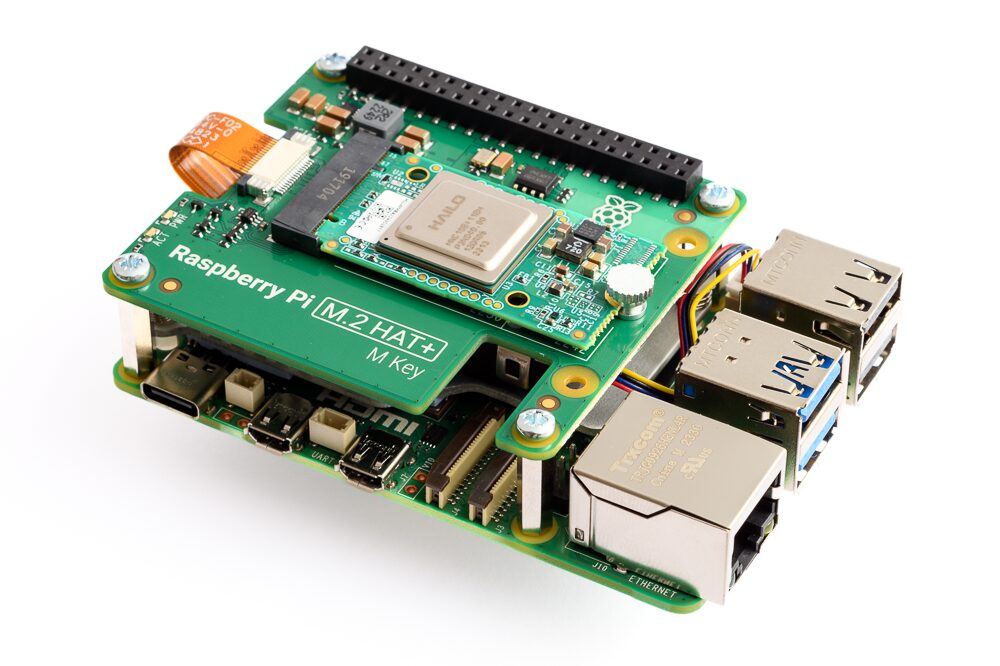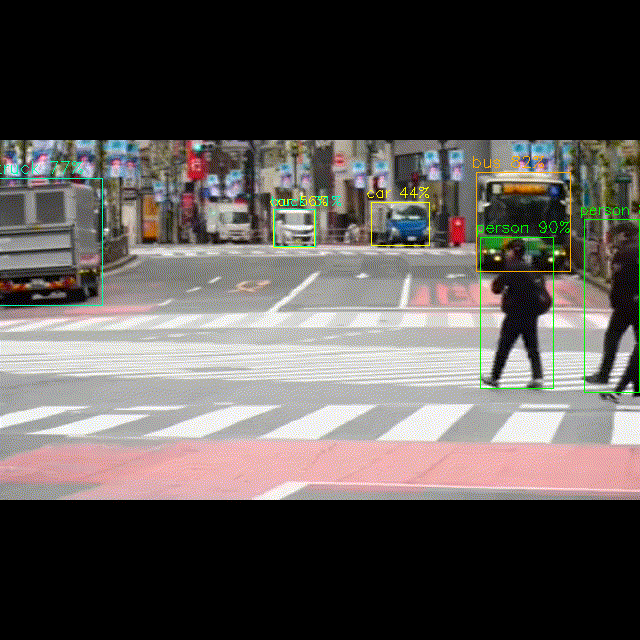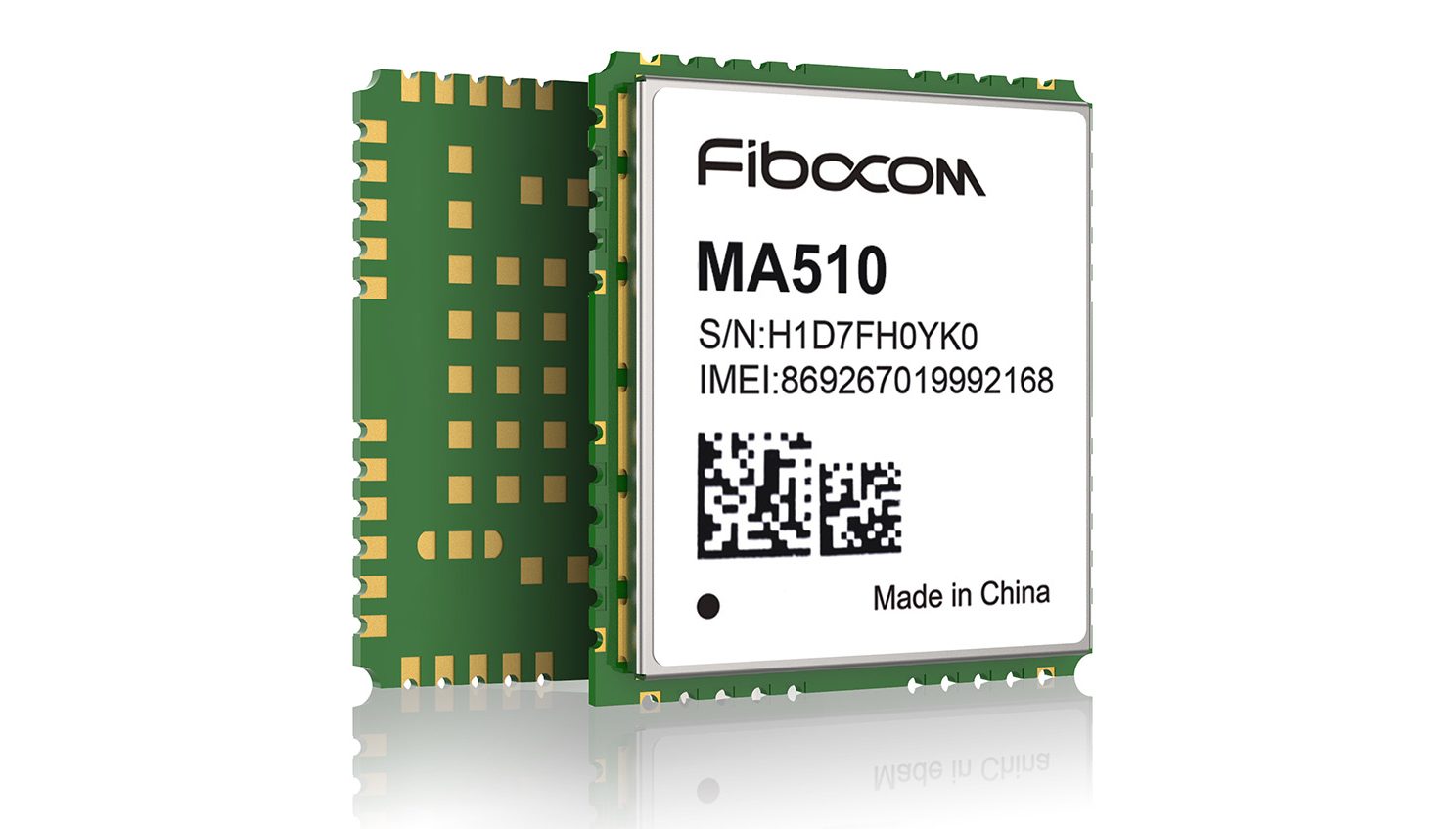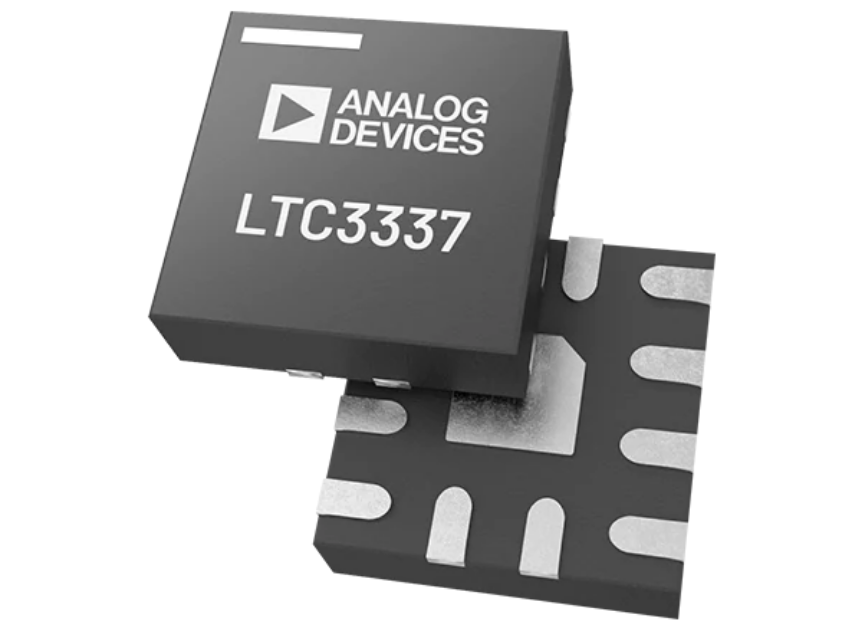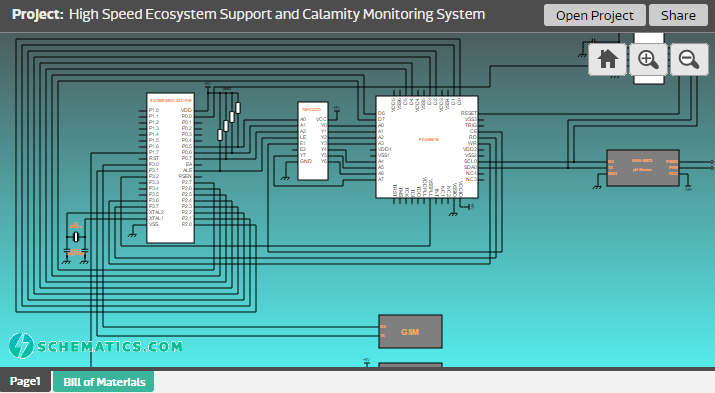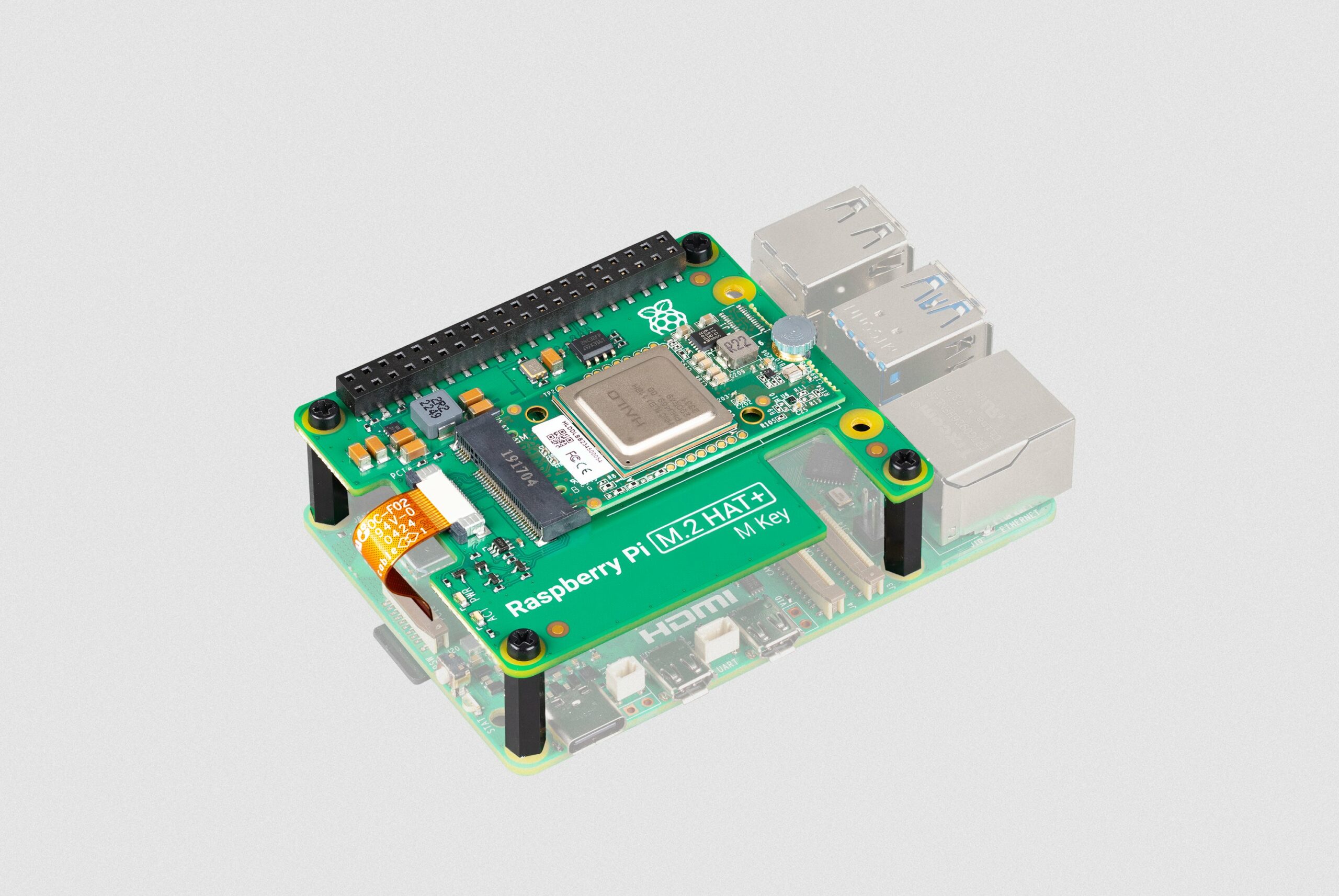
Raspberry Pi M.2 HAT+ with a Hailo AI acceleration module for use with Raspberry Pi 5
The present-day prevalence of AI vision applications has urged even Raspberry Pi to create its own AI development kit. The company recently announced the launch of its new Raspberry Pi AI kit, in collaboration with Hailo.
Each Raspberry Pi AI AI Kit comes with a pre-installed AI module, ribbon cable, GPIO stacking header, and mounting hardware. The kit includes the Raspberry Pi M.2 HAT+ which aids the connection of a Hailo-8L AI accelerator module to the Raspberry Pi 5. Based on an Arm Cortex-A76 CPU, the Raspberry Pi 5 has already been established for vision AI applications owing to the VideoCore VII GPU, supporting OpenGL ES 3.1, and Vulkan 1.2. Whereas, the Hailo NPU with a performance of up to 13 TOPS has some advanced applications.
Technical Specifications of Raspberry Pi AI Kit
- Support SBC – Raspberry Pi 5
- M.2 HAT+ with PCIe Gen2 x1 interfaces, M.2 Key M support,
- Hailo-8L AI accelerator with
- Up to 13 TOPS of performance
- M.2 2242 form factor
- Typical power consumption – 1.5W
- Thermal pad pre-fitted between the module and the M.2 HAT+
- Mounting hardware kit
- 16mm stacking GPIO header
- PCIe FPC cable
The kit includes the Hailo-8L AI entry-level accelerator, distinct from the Hailo-8 AI accelerator, which offers up to 26 TOPS of performance. Despite being entry-level, the Hailo-8L effectively supports AI frameworks like TensorFlow, TensorFlow Lite, Keras, PyTorch, and ONNX for vision applications. Importantly, the AI accelerator significantly reduces the power requirements of the dev board designed for vision tasks. Compared to the CPU or GPU on a Raspberry Pi 5, the Hailo-8L provides lower power consumption and much faster AI processing, as demonstrated in the pose estimation demo in the embedded video.
Provision for Support
The Raspberry Pi-Hailo collaboration is not just on the hardware end it seems. In addition to setting up an online community, they have eased the integration of camera systems into an AI framework through the rpicam-apps suite of camera applications and Hailo Tappas post-processing libraries.
The documentation by Raspberry Pi indicates demos for some basic vision AI applications like object detection, image segmentation, and instance estimation which can be quite useful and easy to implement.
Hailo has also made some demos available on their GitHub. Check out Hailo Official Website and Hailo Community Forum for more information.






